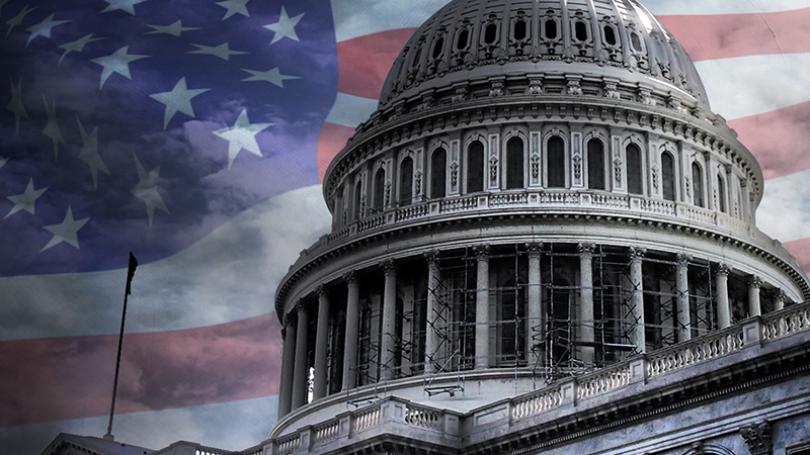Democrats are facing an uphill fight as they try to capture the Senate majority next year.
Since Republicans control the Senate 53 to 47, Democrats will need to gain at least three seats next year to take over.
The exact number will depend on how many Democratic incumbents lose and whether President Donald Trump is reelected, since the vice president casts a tie-breaking vote in the Senate.
In Democrats’ favor, Republicans will be defending 22 of the 34 contested Senate seats in 2020.
Here’s a look at some states that will affect the battle for Senate control .
___
ALABAMA
Democrat Doug Jones won a stunning upset in a 2017 Senate special election. The former U.S. attorney narrowly defeated former state Supreme Court Chief Justice Roy Moore after the Republican was accused of sexual misconduct with teenagers decades earlier.
Jones is an underdog to win next year, but that will depend on his opponent.
GOP Rep. Bradley Byrne has already said he’ll challenge Jones and other lawmakers may follow. Former Attorney General Jeff Sessions, who once held Jones’ seat, declined to say in a recent interview whether he would run again.
Moore also refused to rule out a run, saying in an interview, “I think that President Trump needs some help.” A rerun seems unlikely, but Democrats are drooling at the prospect of drawing him again.
___
KANSAS
Solidly Republican Kansas and Alabama have something in common besides perennially strong college sports teams: potential Senate candidates from the hard right who might boost Democrats to unexpected victory.
In Kansas, U.S. Secretary of State Mike Pompeo, a former congressman, says he’s ruled out seeking retiring GOP Sen. Pat Roberts’ seat. Republicans think he’d win easily and are hoping he’ll change his mind, but others are preparing to jump in.
Former Kansas Secretary of State Kris Kobach, an outspoken Trump ally, has been considering a Senate run. He lost a race for governor last year — suggesting his candidacy might open the door to a Democratic win.
___
MAINE
Republican Sen. Susan Collins has a decades-old brand as an independent who bucks her party on issues like abortion rights. Democrats plan to attack that chiefly with five words: Supreme Court Justice Brett Kavanaugh.
After months of public fence-sitting, Collins provided a crucial vote for the conservative’s confirmation last fall. She said the sexual misconduct allegations against him from the 1980s shouldn’t block his ascension to the court.
Collins helped sink a 2017 GOP bill scuttling President Barack Obama’s health care law. She was the only Republican senator seeking re-election next year to oppose Trump’s national emergency at the southern border in a March vote.
Possible Democratic opponents include former Maine House Speaker Hannah Pingree, daughter of Maine Rep. Chellie Pingree, and Sarah Gideon, the current state House speaker.
___
KENTUCKY
Senate Majority Leader Mitch McConnell will be a tough target. But his refusal in 2016 to even consider former President Barack Obama’s Supreme Court nominee, Merrick Garland, has won him a special place in Democrats’ hearts.
McConnell will be seeking a seventh term in a state Trump, whose name will be on the ballot, carried in 2016 by 30 percentage points. He’s also a sturdy fundraiser.
Senate Minority Leader Chuck Schumer, D-N.Y., has urged former Marine fighter pilot Amy McGrath to run. McGrath, who narrowly lost a race against GOP Rep. Andy Barr in central Kentucky last year, has not said what she’ll do.
Also considering running is Matt Jones, a liberal and well-known radio sports talk show host in Kentucky.
___
NORTH CAROLINA
On Feb. 25, GOP Sen. Thom Tillis published an opinion column in The Washington Post saying he’d vote to block Trump’s declared emergency at the Mexican border. He wrote there’d be “no intellectual honesty” for him to back Trump for eroding Congress’ powers after complaining when Obama acted similarly.
Less than three weeks later, Tillis voted to support Trump anyway after saying the president had agreed to discuss future constraints on presidents against such moves.
Tillis, first elected in 2014 by less than 2 percentage points, was already likely to face a competitive race next year in the closely divided state. His reversal seemed to make that more certain.
So far no high-profile challengers have emerged for the GOP primary or general election.
Democrats say there’s a template for Tillis. Sen. Dean Heller, R-Nev., announced in early 2017 that he opposed Trump’s effort to repeal Obama’s health care law, but then voted with Trump. Heller lost his 2018 re-election bid by 5 percentage points, though Nevada is more Democratic than North Carolina.
(AP)











